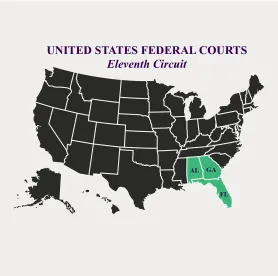On September 30, 2020, the U.S. District Court for the Northern District of Georgia granted an employer’s motion to dismiss a Dodd-Frank whistleblower claim on the ground that the alleged whistleblower did not complain to the SEC prior to his termination. The court also granted Plaintiff’s SOX whistleblower claim as against three affiliates of Plaintiff’s employer, holding that Plaintiff had failed to exhaust administrative remedies as to those defendants because he did not specify the allegedly wrongful conduct attributable to each of them in his administrative complaint. Slawin v. Bank of America Merchant Services., et al., No. 19-cv-04129 (N.D. Ga. Sept. 30, 2020).
Background
Plaintiff, a former Vice President and Operations Control Officer at the Company, filed a whistleblower retaliation action against Company, its parent, and two joint venturers (the “non-Company Defendants”), alleging his employment was terminated in retaliation for his complaints regarding Company’s purported failure to comply with Payment Card Industry (“PCI”) standards. Specifically, he alleged that the Company, an entity that provided payment processing services to other companies and municipalities, not only failed to handle consumers’ personal data in compliance with PCI standards, but also knowingly misled its customers into believing that it was, in fact, PCI compliant. Following his termination, Plaintiff filed whistleblower retaliation complaints with the SEC and OSHA, alleging wrongful conduct by the Company but only naming the remaining defendants in the context of explaining their relationship to the Company.
All four Defendants moved to dismiss, with the Company moving as to Plaintiff’s Dodd-Frank and CFPA claims, and the three remaining defendants seeking dismissal of the entire complaint as against them. Specifically, Defendants argued that Plaintiff’s Dodd-Frank claim should be dismissed because he failed to make a report to the SEC prior to his termination, and his CPFA claim should be dismissed because Defendants did not qualify as “covered persons” or “service providers” under that statute because they did not provide services to “customers.” The three non-Company Defendants further argued that Plaintiff’s SOX and CFPA claims should be dismissed as to them because Plaintiff failed to exhaust his administrative remedies by not attributing any alleged conduct to them in his SEC or OSHA complaints.
Ruling
Relying on the Supreme Court’s decision in Digital Realty Tr., Inc. v. Somers, 138 S. Ct. 767 (2018) (our post on that decision is here), the court held that because Plaintiff did not provide information to the SEC before his termination, he did not qualify as a “whistleblower” under Dodd-Frank at the time of the alleged retaliation. Accordingly, the court dismissed Plaintiff’s Dodd-Frank claim as to all Defendants.
Similarly, the court granted the non-Company Defendants’ motion as to Plaintiff’s SOX claim, holding that Plaintiff had failed to exhaust his administrative remedies as to them. Specifically, relying on the Eleventh Circuit’s unpublished decision in Smith v. Psychiatric Sols., Inc., 358 Fed. Appx. 76, 78 (11th Cir. 2009), in which that court affirmed a decision finding lack of exhaustion against defendants not named as respondents in the administrative complaint. After specifically noting that it did not read Smith as adopting a per se rule requiring naming a SOX defendant as a respondent in an administrative complaint to exhaust remedies as to that defendant, the court noted that the few references to these defendants in Plaintiff’s OSHA Complaint were insufficient.
Implications
This decision serves as a reminder that Dodd-Frank’s anti-retaliation provisions are only triggered where a plaintiff makes a pre-termination external report to the SEC. It also highlights an avenue to seek dismissal of a SOX whistleblower retaliation complaint naming multiple corporate defendants where the plaintiff does not sufficiently specify in an administrative complaint alleged wrongful acts committed by each defendant.




 />i
/>i


